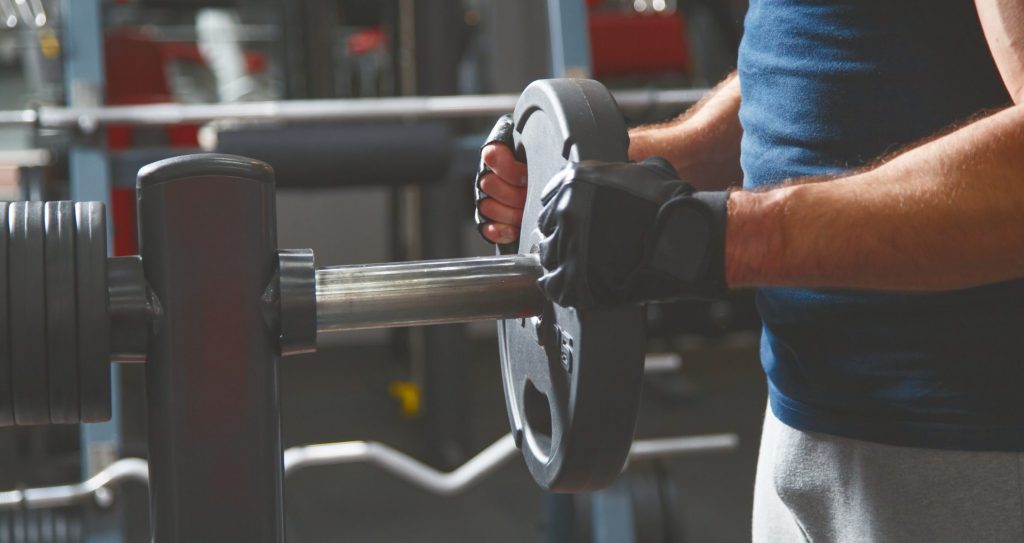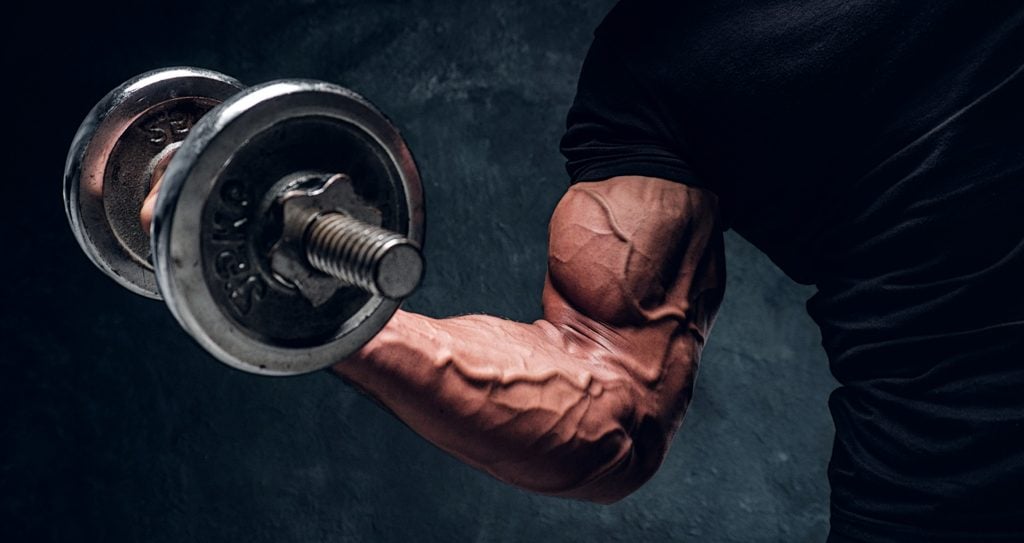Less volume, weight, and intensity in the gym can actually be good for you
If you’ve been training for a long time and no matter how many tweaks and adjustments you make to your training plan, your nutrition, and your sleep, you still can’t break past plateaus, you may want to try adding a deload week to your program.
Many people make the mistake of continuously pushing themselves and pushing harder when they reach a plateau, but the reality is that you’ll want to do the opposite and push yourself less. Giving your body a break from the taxing effects of doing a lot of volume at a high intensity is sometimes just what it needs to hit new personal records (PRs) and continue to build the body that you want.
Below, our team at Generation Iron will break down what a deload week is and the reasons you should start including them in your training plan.
What is a Deload Week?
While pushing yourself to lift more and more weight in the gym is fun, rest and recovery are just as important for your body and muscles to grow and get stronger. Of course, one way you can rest from working out is by completely taking time away from the gym and being a couched potato in general. However, there are slightly more productive approaches that will have you burning calories and giving you all the other benefits of exercise without having to give up on moving completely.
For one, you can partake in your favorite physical activities, including swimming, hiking, biking, rowing, basketball, etc. This is known as active recovery. Although you won’t be giving your body a complete rest day, which is still important, you’ll be giving your body a break from weightlifting so that your muscles can grow, but you are still being physically active and getting your blood pumping.
Outside of playing different sports, you can follow a method that still allows you to do the exercises and work your muscles in your training plan, except instead of pushing yourself on weight and reps, you’ll reduce the workload you do. This is known as a deload week.
4 Reasons to do a Deload Week
1. Better Rest and Recovery
Your muscles don’t grow while you’re lifting, they break down. Your muscles actually grow while you’re resting and recovering. And while taking full rest days — where you do no activities that day — are important, having some weeks that are less intense than other weeks is important as well (1).
When you lift weights, you place a lot of stress on your central nervous system (CNS) and muscles. Lifting weights well-rested will allow you to lift the most weight you’re capable of, which will continue to get you stronger and build you muscle. Whereas always lifting weights in a fatigued state won’t allow you to push yourself at your highest capability each workout, hampering your total strength and muscle growth.
2. Hit New PRs
Since you’ll be able to push yourself harder each workout when you’re fully rested and full of energy, you’ll be able to explode your lifts and hit new PRs on movements, including the big compounds barbell bench press and barbell squats.
This study from the Journal of Strength and Conditioning Research found that collegiate athletes who followed auto regulatory progressive resistance training — increasing or lowering weight based on how they felt — gained more strength than following a linear progression model — a set increase in intensity and weight from week to week (2).
3. Improve Your Joint Health
Resistance training is healthy for your joints, however, doing too much weightlifting can be detrimental to your joint health. And while you can take a good joint supplement to help your recovery, giving your muscles, bones, and joints, a rest from external stimulus can improve your joint health and keep them strong long-term (3).
Adding a deload week to your training plan will reduce your chances of injury and your joints will feel stronger and you’ll have fewer tweaks you’ll have to worry about that may prevent you from using heavier weights.
4. Reduced Stress
Overtraining can decrease your testosterone and increase your cortisol levels — your stress hormone — which negatively affects your muscle growth and overall health. Taking some time off to allow your body to rest up and reset can prevent this (4).
Weight training and pushing your physique to new heights places a lot of stress on your mind and body, and allowing yourself some time with less volume at a lower intensity can give your mind and body the reduction in stress it needs to increase your lifts when you go back to your normal intensity and volume.
How to Properly Deload
There’s no cookie-cutter method of doing this, but in general, you’ll be using much lighter weight and doing fewer sets.
The best way to do this is to cut back 1-2 sets for each exercise and reduce the weight you use by 40-60% of what you would normally do. With this method, you can still do the same number of reps you usually would do, you’ll just be doing much less volume and intensity.
How Often Should You Deload
There is no set amount of time or cycle you’ll want to follow to do this. It’s best to listen to your body. For example, if you’ve been stuck at the same weight for a while or are feeling extra fatigued, that would be a good time to incorporate a deload week to give your body a break and let it reset. However, it’s recommended that you deload once every 6-12 weeks, depending on each individual and athlete. For example, a powerlifter who is pushing themselves with more intensity and volume should take a deload week more often than an average gym-goer who is pushing themselves at a lower intensity.
Conclusion
When your body stops growing and getting stronger, or you’re feeling fatigued and exhausted from your training plan, adding a deload week can be just what you need to push past plateaus and give your body the rest and reset it needs to continue on its path to building your desired physique.
A deload week improves your rest and recovery process, helps you hit new PRs, improves your joint health, and reduces stress.
Have you ever tried a deload week before? If so, let us know how it went in the comment sections below. Also, share this article on social if you think other people will get value out of it.
Let us know what you think in the comments below. Also, be sure to follow Generation Iron on Facebook, Twitter, and Instagram.
References
1 – Cheng, A. J., Jude, B., & Lanner, J. T. (2020). Intramuscular mechanisms of overtraining. Redox biology, 35, 101480. https://doi.org/10.1016/j.redox.2020.101480
2 – Mann, J. B., Thyfault, J. P., Ivey, P. A., & Sayers, S. P. (2010). The effect of autoregulatory progressive resistance exercise vs. linear periodization on strength improvement in college athletes. Journal of strength and conditioning research, 24(7), 1718–1723. https://doi.org/10.1519/JSC.0b013e3181def4a6
3 – O’Brien M. (2001). Exercise and osteoporosis. Irish journal of medical science, 170(1), 58–62. https://doi.org/10.1007/BF03167724
4 – Flavio A. Cadegiani, Claudio E. Kater, Matheus Gazola. (2019) Clinical and biochemical characteristics of high-intensity functional training (HIFT) and overtraining syndrome: findings from the EROS study (The EROS-HIFT). Journal of Sports Sciences 37:11, pages 1296-1307.









